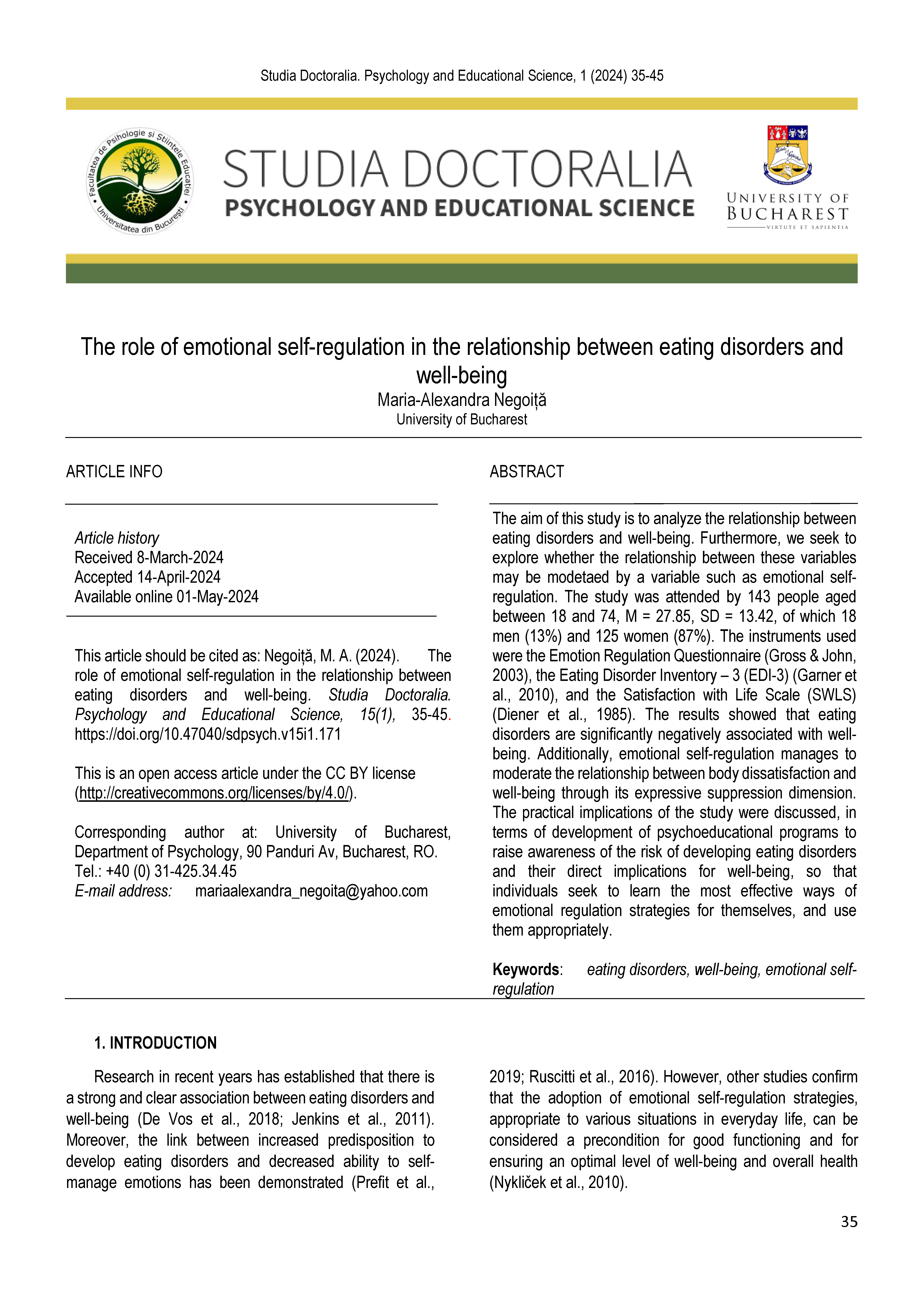The role of emotional self-regulation in the relationship between eating disorders and well-being
DOI:
https://doi.org/10.47040/sdpsych.v15i1.171Cuvinte cheie:
eating disorders, well-being, emotional selfregulationRezumat
The aim of this study is to analyze the relationship between eating disorders and well-being. Furthermore, we seek to explore whether the relationship between these variables may be modetaed by a variable such as emotional selfregulation. The study was attended by 143 people aged between 18 and 74, M = 27.85, SD = 13.42, of which 18 men (13%) and 125 women (87%). The instruments used were the Emotion Regulation Questionnaire (Gross & John, 2003), the Eating Disorder Inventory – 3 (EDI-3) (Garner et al., 2010), and the Satisfaction with Life Scale (SWLS) (Diener et al., 1985). The results showed that eating disorders are significantly negatively associated with wellbeing. Additionally, emotional self-regulation manages to moderate the relationship between body dissatisfaction and well-being through its expressive suppression dimension. The practical implications of the study were discussed, in terms of development of psychoeducational programs to raise awareness of the risk of developing eating disorders and their direct implications for well- being, so that individuals seek to learn the most effective ways of emotional regulation strategies for themselves, and use them appropriately.





